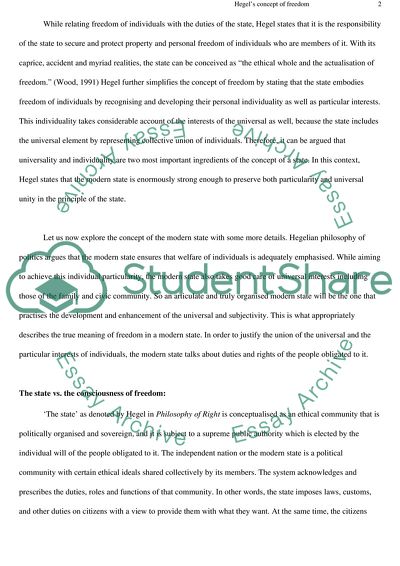Cite this document
(“According to Hegel, how does the modern state actualize freedom Essay”, n.d.)
Retrieved from https://studentshare.org/miscellaneous/1560301-according-to-hegel-how-does-the-modern-state-actualize-freedom
Retrieved from https://studentshare.org/miscellaneous/1560301-according-to-hegel-how-does-the-modern-state-actualize-freedom
(According to Hegel, How Does the Modern State Actualize Freedom Essay)
https://studentshare.org/miscellaneous/1560301-according-to-hegel-how-does-the-modern-state-actualize-freedom.
https://studentshare.org/miscellaneous/1560301-according-to-hegel-how-does-the-modern-state-actualize-freedom.
“According to Hegel, How Does the Modern State Actualize Freedom Essay”, n.d. https://studentshare.org/miscellaneous/1560301-according-to-hegel-how-does-the-modern-state-actualize-freedom.


